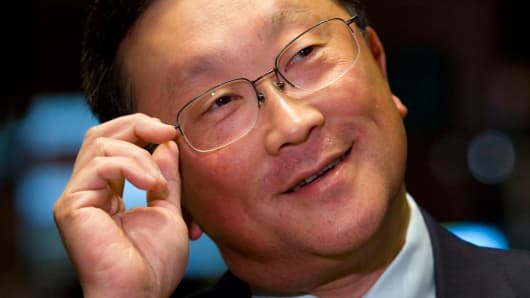The "Internet of Things," a vague catchall phrase that gets people excited even if they are not quite sure what it means, is no longer a theoretical concept, but a new reality that is revolutionizing the way we live and work. Imagine the possibilities: Your doctor can access real-time information about your health direct from monitoring equipment, share it quickly with other medical professionals, and tap into the diagnostic and treatment resources of the best institutions in the world.
A core strategy of the ongoing turnaround at BlackBerry taps into the interconnected systems that make up the Internet of Things. By doing so, we will be able to deploy our unique assets and capabilities to help industries operate efficiently, reliably and, most importantly, securely.


